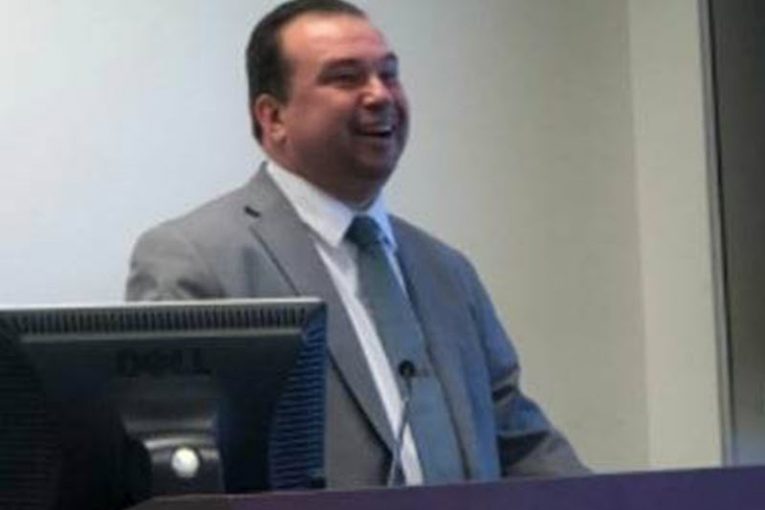

By Jeffrey Deskovic
“Looking back” will feature reprints of articles that Jeff previously wrote while a columnist at The Westchester Guardian, which encompass topics that are applicable here in CA as well as across the country and not simply applicable to NY.
In 1994, Jim Trainum was a young, newly-minted homicide detective for the Metro Washington, D.C., police when he inadvertently obtained a false confession from a female suspect in a murder case. Trainum had been a uniformed cop with Metro for nine years before rising to become a detective.
Two things saved Trainum from wrongfully convicting his female suspect: she had an airtight alibi which he later confirmed; and he videotaped her interrogation—an uncommon practice at that time—which he later studied.
Once Trainum realized the alibi conclusively proved his suspect’s innocence, he wanted to know why she falsely confessed and carefully reviewed the videotape. In that review, he discovered many details in her confession—facts he initially regarded as evidence proving her involvement in the crime had been provided by himself and his partner  during their interrogation. The suspect merely parroted what the detectives fed to her.
during their interrogation. The suspect merely parroted what the detectives fed to her.
Trainum was shaken up and forever changed by that experience. He realized that, but for the woman’s fortuitous alibi, he might have sent an innocent person to prison.
Now retired, Trainum continues to be a vital advocate for police reform to stop wrongful convictions. He became more careful when conducting interrogations and shared what he learned with others in law enforcement. He is a frequent lecturer and has written several op-eds about the importance of videotaping all interrogations. Trainum also teaches a class on interrogation techniques and false confessions.
Most significantly, he played a critical role in the exoneration of Donald Gates, a man who had spent twenty-eight years in prison for a murder he did not commit. Trainum located the DNA material which eventually freed Gates.
In March 2010, Trainum won “The champion of Justice” award from The Innocence Network, comprised of numerous Innocence Projects across the country. The award is given to public servants “who go above and beyond in supporting and championing efforts that free the wrongfully convicted and/or reform the criminal justice system to prevent wrongful convictions.”
Trainum strongly supports creation of police innocence commissions, a kind of “black box” quality control mechanism to review wrongful conviction cases. Innocence commissions would have subpoena power to question witnesses and gather other evidence to evaluate what went wrong. Trainum believes police must study their mistakes to learn vital lessons necessary to avoid repetition of those mistakes in the future.
Every aspect of a case would be reviewed: the scope of the investigation; what caused detectives to focus on the wrong suspect; were other leads not followed; etc. Systemic deficiencies that led to a wrongful conviction would be identified: a false confession; misidentification of the suspect; use of junk science; an error in analyzing forensic evidence; etc. Innocence commissions also would evaluate the role of intentional or negligent police misconduct in procuring a wrongful conviction and, likewise, scrutinize the prosecutorial stage to determine if prosecutors facilitated the wrongful conviction—like failing to disclose exculpatory evidence to the defense; ignoring misgivings about evidence expressed by prosecution experts; etc. Quality control reviews also would examine the post-conviction stage of cases because, in many instances, wrongful convictions take too long to detect and correct.
Innocence commissions also would generate recommendations for reform legislation and seek voluntary compliance with suggested reforms from police agencies and prosecutors’ offices. Public dissemination of commission recommendations would advance enactment of needed reforms.
Efforts are now underway to create innocence commissions. They exist in England but not the United States. Trainum believes that, without this quality control apparatus, the criminal justice system is doomed to repeat its mistakes and continue to convict innocent people. He sees no contradiction between the innocence movement and aggressive law enforcement. To the contrary, he argues law enforcement never wants innocent persons to be convicted because each time that occurs, the actual perpetrator is left on the streets to strike again.
Trainum sought to catch real criminals without cutting procedural corners or engaging in other improper practices which can lead to wrongful convictions. Studying false confessions made him a better cop, and today, a better advocate for needed police investigative reforms. He mined his own experience and used it in a meaningful way to improve the criminal justice system to make it as accurate and effective as possible.
Jim Trainum is a cop’s cop. Let’s hope legislatures heed his words and enact laws to create innocence commissions.
Jeffrey Deskovic, Esq, MA, is an internationally recognized wrongful conviction expert and founder of The Jeffrey Deskovic Foundation for Justice, which has freed 9 wrongfully convicted people and helped pass 3 laws aimed at preventing wrongful conviction. Jeff is an advisory board member of It Could Happen To You, which has chapters in CA, NY, and PA. He serves on the Global Advisory Council for Restorative Justice International, and is a sometimes co-host and co-producer of the show, “360 Degrees of Success.” Jeff was exonerated after 16 years in prison-from age 17-32- before DNA exonerated him and identified the actual perpetrator. A short documentary about his life is entitled “Conviction“, and episode 1 of his story in Virtual Reality is called, “Once Upon A Time In Peekskill“. Jeff has a Masters Degree from the John Jay College of Criminal Justice, with his thesis written on wrongful conviction causes and reforms needed to address them, and a law degree from the Elisabeth Haub School of Law at Pace University. Jeff is now a practicing attorney.
